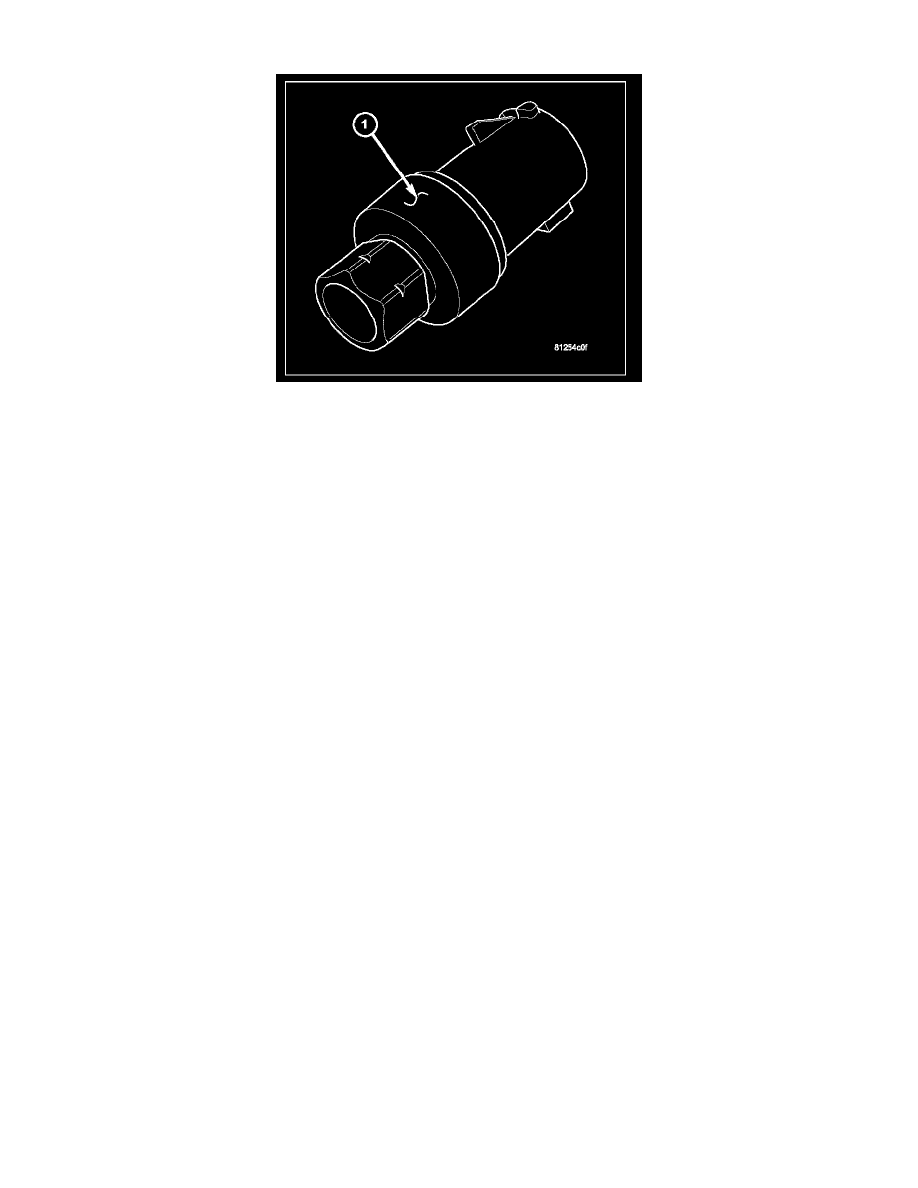RAM 1500 Truck 2WD V8-5.7L VIN 2 (2006)

Refrigerant Pressure Sensor / Switch: Description and Operation
The A/C pressure transducer (1) is a switch that is installed on a fitting located on the A/C discharge line. An internally threaded fitting on the A/C
pressure transducer connects it to the externally threaded Schrader-type fitting on the A/C discharge line. A rubber O-ring seals the connection between
the A/C pressure transducer and the discharge line fitting. The A/C pressure transducer is connected to the vehicle electrical system by a molded plastic
connector with three terminals.
The A/C pressure transducer monitors the pressures in the high side of the refrigerant system through its connection to a fitting on the A/C discharge line.
The A/C pressure transducer will change its internal resistance in response to the pressures it monitors. A Schrader-type valve in the A/C discharge line
fitting permits the A/C pressure transducer to be removed or installed without disturbing the refrigerant in the A/C system.
The A/C pressure transducer will change its internal resistance in response to the pressures it monitors. The powertrain control module (PCM) or the
engine control module (ECM) (depending on engine application) provides a five volt reference signal and a sensor ground to the A/C pressure
transducer, then monitors the output voltage of the transducer on a sensor return circuit to determine refrigerant pressure. The PCM/ECM is programmed
to respond to this and other sensor inputs by controlling the operation of the A/C compressor clutch and the radiator cooling fan to help optimize A/C
system performance and to protect the system components from damage. The PCM will disengage the A/C compressor clutch when high side pressure
rises above 3172 kPa (460 psi) and re-engage the clutch when high side pressure drops below 1999 kPa (290 psi). The A/C pressure transducer will
also disengage the A/C compressor clutch if the high side pressure drops below 193 kPa (28 psi) and will re-engage the clutch when the high side
pressure rises above 234 kPa (34 psi). If the refrigerant pressure rises above 1655 kPa (240 psi), the PCM will actuate the cooling fan. The A/C
pressure transducer signal to the PCM/ECM will also prevent the A/C compressor clutch from engaging when ambient temperatures are below about 10
° C (50° F) due to the pressure/ temperature relationship of the refrigerant. The A/C pressure transducer input to the PCM/ECM will also prevent the
A/C compressor clutch from engaging when ambient temperatures are below about 10° C (50° F) due to the pressure/temperature relationship of the
refrigerant.
The A/C pressure transducer is diagnosed using a scan tool.
The A/C pressure transducer cannot be adjusted or repaired and, if faulty or damaged, it must be replaced.
